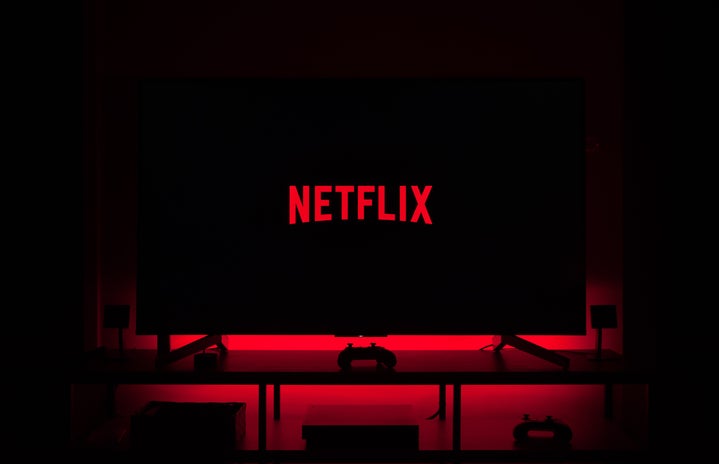The appeal for true crime content has skyrocketed in recent years, and Netflix has been more than happy to oblige. You can find an endless amount of true crime content on Netflix, and there is an incredible number of documentaries and docuseries about the lives and crimes of serial killers that have been released in recent years. Just this year, a docuseries on John Wayne Gacy has been released, and most recently, the infamous Jeffrey Dahmer has been put under Netflix’s spotlight in ‘DAHMER – Monster: The Jeffrey Dahmer Story’ directed by Ryan Murphy. Due to the popular demand for such content, these have been incredibly successful in ratings and streaming, and are incredible money-makers for the platform.
But here is where the problem lies: is it ethical to exploit these traumatising stories for the sake of profit and good ratings? While the series has been incredibly successful and is still the No. 1 recommended show to me on Netflix even as I type this, it has caused a lot of controversy. The reception of the show is both good and bad, on one hand, the show has received a lot of praise, but on the other hand, there has been a lot of backlash. The backlash revolves around the families of Dahmer’s victims who have taken to Twitter to reveal their thoughts about the show.
Being the recovering true crime addict that I am, I thought I’d do a deep dive into why this show has caused so much controversy, while simultaneously revealing the ethical problems that true crime content grapples with. Plus, given that my previous article was about ‘My Problems with True Crime’, it felt fitting for me to look into this show. Thank you, Netflix, for providing me with the perfect example of what not to do when retelling traumatic events! So, without further ado, let’s get into why I refuse to watch this new series.
The families of the victims have been “re-traumatised”
I’ve heard a lot of talk about how people were pleased that the focus of the docuseries revolved more around the victims of Dahmer instead of focusing too much on Dahmer himself, as when too much emphasis is situated on the killer, it tends to cause sympathy for the perpetrator. Netflix has even described the show as “giving the victims a voice”, suggesting that the show has brought the victims justice. However, I’d have to disagree based on the responses of the families of the victims brought up in the series.
Eric Perry and Rita Isbell, family members of Errol Lindsey, one of Dahmer’s victims, have taken to Twitter to express their distaste for the show and the heartache the show and its reception have caused them. Perry criticises Netflix and their statement that they made the show to honour the victims, “when they say they’re doing this ‘with respect to the victims’ or ‘honouring the dignity of the families, no one contacts them. My cousins wake up every few months at this point with a bunch of calls and messages and they know there’s another Dahmer show. It’s cruel.” He also says that the show is “re-traumatising” for his family, and states that “I’m not telling anyone what to watch, I know true crime media is huge rn. But if you’re actually curious about the victims, my family (the Isbells) are pissed about this show.” Isbell, in reaction to a recreation of her court testimony in the series, says that “it felt like reliving it all over again…it brought back all the emotions I was feeling back then”.
In my previous article, I explored how true crime media can be damaging due to the dehumanisation of victims, and how this content is traumatic for the families of victims as they are forced to relive their traumas for the sake of mindless entertainment and amusement – the Dahmer series has done just that, and in this case, we can see that the families are speaking out about this issue. So, I’d like to talk back to people who believe that this show honours or shows compassion for Dahmer’s victims, as it is obvious that the families of the victims have been negatively affected by the show.
My opinion? I don’t think the show did anything for the victims other than reinforce their identities purely as victims, forever tied to Dahmer’s name. I don’t think the show focuses on the victims out of respect, like some people claim, but rather I think that their stories have been exploited for profit. There is no justice or sympathy here for the victims, like some people claim. This show has only succeeded in further violating the victims and their existing families, it has not dignified them.
Capitalist motivation
I don’t think there’s any worth in beating a dead horse. Dahmer’s story has been told a countless number of times in various different documentaries and movies, even as recently as 2017 with Marc Meyers ‘My Friend Dahmer’. Perry writes that “It’s retraumatizing over and over again, and for what? How many movies/shows/documentaries do we need?” Isbell also expresses her opinions of the new Netflix series, “It’s sad that they’re just making money off of this tragedy. That’s just greed.”
Further, the families were never contacted by Netflix, showing that there was no consideration for how the show might affect them. Isbell says that her family “was never contacted about the show” and that there was evidently no consideration for how the show might affect them and their mourning. She continues by saying, “I feel like Netflix should’ve asked if we mind or how we felt about making it. They didn’t ask me anything. They just did it.” Perry adds to this train of thought, tweeting that “[Netflix don’t notify families when they do this. It’s all public record, so they don’t have to notify (or pay!) anyone. My family found out when everyone else did.”
I think it’s a safe assumption to believe that the families weren’t contacted out of courtesy because if Netflix had chosen to contact the families, they wouldn’t be able to produce it, and they wouldn’t have been able to profit from it. If Netflix had actually had any consideration for the victims, as they claimed, the show wouldn’t have been made at all. Netflix, your capitalist priorities of profit are showing. And it has had negative consequences for the wellbeing of the victims’ families.
The series had undoubtedly caused a lot of controversy in its reception, particularly due to the backlash it received with regards to the thoughts and opinions of the victim’s families. I’m aware that my opinions on the show are limited due to my choice of not watching it, and truthfully, I’m already inclined to dislike the show due to my renowned dislike for Netflix exploiting traumatic experiences and stretching them out for as long as possible for more profit. I’m also predisposed to disliking it as I’m not a fan of just about everything that Ryan Murphy produces (although admittedly I do have a soft spot for Glee). So, if you bump into me in person, feel free to tell me your opinions if you fiercely agree or disagree with me. But I find it hard to look past these aspects of the show that I explored, particularly the pained responses from the families of the victims, who have to suffer through every retelling of their trauma just because Netflix wanted easy money.


